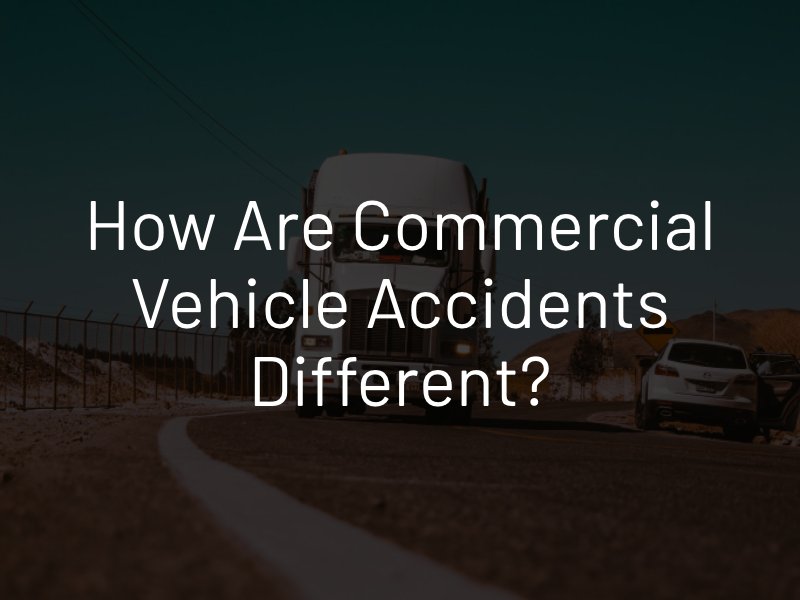
Legally Reviewed By: Robert M. Knowles
Attorney & Partner At Knowles Law Firm
Every year, thousands of people get injured and killed in commercial vehicle accidents. If you get injured in a commercial vehicle accident in Omaha, you may need assistance from a truck accident lawyer to handle the claims process. These collisions are more complicated than standard car accident cases for a variety of reasons.

Federal Rules and Regulations
Truck drivers and the companies that employ them have a different set of rules and regulations compared to standard motor vehicle drivers. Commercial vehicles have to abide by common carrier laws under the Code of Federal Regulations (CFR).
These laws include:
- Truck driver hours-of-service restrictions
- Truck maintenance and inspection rules
- Electronic logging device requirements
- Driver training and licensing requirements
- Cargo loading and securement rules
Regulatory compliance is critical for the safe operation of commercial vehicles. The Federal Motor Carrier Safety Administration (FMCSA) is in charge of ensuring compliance. If a commercial vehicle driver or company violates federal safety laws, this can cause a large truck accident. Proof of a violation could be used as evidence against the at-fault party.
Catastrophic Injuries and Wrongful Deaths
Large commercial vehicles such as 18-wheelers and passenger buses weigh significantly more than the average passenger car. A big rig can weigh up to 80,000 pounds, for example, while the average car weighs between 3,000 and 4,000 pounds. This disparity means that commercial vehicle accidents are more likely to result in catastrophic and fatal injuries. In most commercial vehicle collisions, the occupants of the smaller car suffer the worst of the injuries.
Different Crash Dynamics
The size, weight, shape and design of many commercial vehicles lead to unique accident dynamics and types of collisions. For example, tractor-trailers have large blind spots due to the length of the vehicle. This can increase the odds of merge and lane-change accidents.
Unique types of accidents associated with commercial vehicles include:
- Jackknife accidents
- Tire blowouts
- Brake failures
- Wide-turn accidents
- Rear-end collisions due to extended stopping distance
- Underride and override accidents
- Mechanical defects or failures
- Trailer detachment
- Lost cargo loads
- Hazardous material spillage
In addition, commercial vehicle accidents can be caused by unique aspects of the job. A truck driver may be more prone to drowsy or fatigued driving, for instance, due to long hours on the road, a reversed sleep schedule, overnight shifts and pressure to meet deadlines.
Unique Types of Evidence
The evidence involved in a commercial vehicle accident is often different than a traditional car crash. Commercial vehicles are required to implement a variety of recording and logging devices to ensure regulatory compliance. This can result in available evidence such as driver logs, the truck’s black box, event data recorders, driver records and qualifications, a truck driver’s medical history, truck inspection reports, and federal compliance history.
Size and Interest of the Adversary
Commercial vehicle accidents come with large and powerful adversaries. Rather than only contending with another driver, a victim has to go up against a powerful trucking company, its aggressive legal team and a major insurance corporation. Trucking companies and their insurers often have investigators at the scene almost immediately to collect evidence.Multiple parties are often involved in these collisions, such as cargo companies and fleet maintenance crews. This can lead to liability issues and disputes that may extend the timeline of a truck accident case. The best way to protect yourself as a victim of a commercial vehicle accident in Nebraska is by hiring an Omaha personal injury attorney to navigate the complexities of your case for you. Reach out to our firm today for a free consultation.

About Our Attorney
Robert M. Knowles
Attorney & Partner at Knowles Law Firm
Robert has tried cases in both state and federal courts and was selected as one of the top 100 litigation lawyers in Nebraska for 2014 by the American Society of Legal Advocates. Less than 1.5 percent of lawyers nationally are selected for this recognition. He is rated AV by Martindale-Hubbell which is the highest rating an attorney can obtain. He was also selected by Martindale-Hubbell as a 2019 Top Rated Lawyer.


 Menu
Menu
